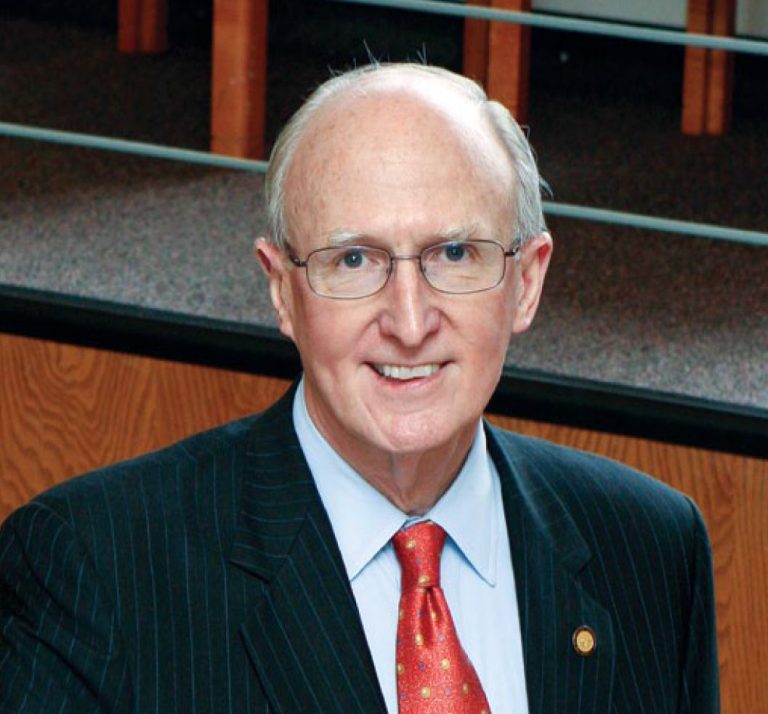
In “Letters to Students: What it Means to Be a College Graduate,” my co-author and I explore topics such as critical thinking, how do we know what we think we know, the meaning of success, and how to consider who we want to be, the topic of this piece.
We live in an increasingly interdependent world and ever more diverse communities. It is likely that the graduates of our schools and universities either will supervise or be supervised by someone of a different ethnic, national or racial background.
It also is likely that the work of our employers and activities of our families will be influenced in profound ways by suppliers, customers, clients, and others who are of a different cultural background.
What then are some universal values to define who we want to be?
Surely one value underscores the dignity of each person. As the saying goes, “Dignity has nationality.”
Cooperation is a universal value even when the drive for competition sometimes
seems overwhelming. Recognizing the necessity of mutual interdependence is a universal ideal.
While laws and norms of morality, i.e., what is considered good and evil, may differ by culture, the discipline of ethics is universal. Ethics is the lens by which we examine legal codes and moral standards and how they are applied.
This lens helps us analyze the treatment of others, seeking fairness and justice as opposed to bias and prejudice.
When we consider our roles as ethical persons, we must ask can we allow ourselves to remain silent in the face of social and economic injustice?
I think we must employ the ethical “eye” to challenge societal patterns that test our sense of what is just. This takes courage as well as compassion, but it is our obligation as humans to identify the fault lines in society and develop appropriate strategies to address injustices wherever they occur.
This is the promise of America: to seek a more perfect union in which hope, humility, and
forgiveness are norms. No one should be “the other” to us. We are one species, whether natives or refugees, with each member seeking a unity of head and heart, no matter their religious commitment, national membership, or political affiliation. We are one in the air we breathe and the land we till.
As citizens, we must seek truth and justice through evidence, not emotion, even as we are
passionate in the pursuit of both. In all cases, we must take the path to justice free from bias, emotion, and fear, even when it may run counter to family values, local customs, or political rhetoric.
This requires us to care for others, to know the difference between sympathy, empathy,
and compassion. Sympathy means “I feel sorry for you.” Empathy means “I feel your pain.”
But compassion means these two plus, “I will take action to aid you.” This, too, is a value to embrace.
Another value of importance is the notion of a culture of peace. Peace is not only the absence of violence but also the presence of conditions for human development. There can be no peace without economic development, no economic development without community development, and no community development without the opportunity for education. This is public policy as if people matter.
The mission of every school and university should be to advance students’ knowledge, skills, abilities, and values necessary for understanding different cultures and for being tolerant, with compassion.
Surely, this mission is consistent with that of the UN Charter: “To reaffirm faith in
human rights, to establish justice and respect for international law, and to promote social progress and better standards of life, they have promised to practice tolerance and live together in peace with one another as good neighbors for the economic and social advancement of all people.”
There are, of course, limits to what we can teach and require of our children and students. That is why I emphasize that the mission of education is to enhance the ability of students to learn on their own as well as in groups.
We can promise to prepare them to learn anything even if we cannot promise to teach them everything. With this understanding, they will be better prepared to figure
out who they want to be.
Robert A. Scott, President EmeTritus and University Professor Emeritus, Adelphi University;
Author, How University Boards Work, Johns Hopkins University Press, 2018.
_______
An earlier version of this essay appears as Chapter 10 in “Letters to Students: What it Means to Be a College Graduate,” Rowman and Littlefield, 2024, co-authored with Dr. Drew Bogner, President Emeritus, Molloy University. The book is available in hardcover, softcover, and e-book modes.







Beautiful. If only there was evidence the world would manifest your wisdom.